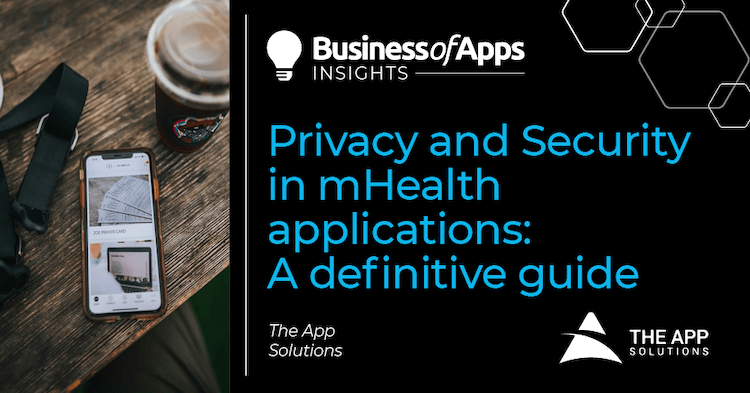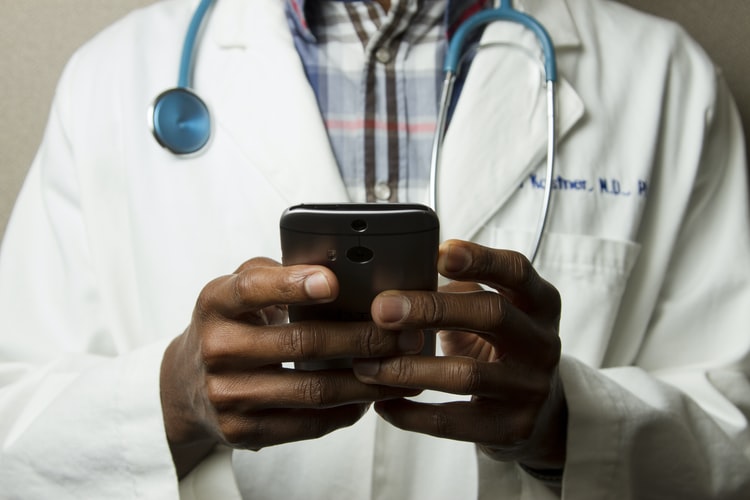
Data security is no longer a post scriptum but an epigraph for mobile applications. In particular, cross-platform apps put security at risk, since hackers can always find a loophole to bypass protection measures. Or they can simply deliver a blatant low blow to unpatched vulnerabilities.
As the number of organizations investing in their own applications is growing, the potential vulnerabilities and risks connected with app development have also cascaded. Open-source integration does not help either.
Data privacy issues have had a particular toll on the healthcare industry. As telemedicine solutions account for seismic changes in mHealth, app privacy and security have become the most pressing issues. This article will give an insight into the basics of data protection for health applications and help you kickstart your healthcare digital transformation journey. We’ll also share our experience in creating in-app protection for telemedicine platforms.
Why is app privacy important for medical care?
Technology continues to take roots in the healthcare sector, thus revamping medical care practices. According to ResearchGate, the App Store has more than 31,000 apps related to medicine, health, and fitness whereas Android’s Google Play has more than 16,000 medical and health care apps. However, in their race to embrace technology and enhance the patient’s experience, medical organizations come across a tangible threat of sensitive patient data being seized by cybercriminals.
Thus, HealthGlobal data suggests that more than 80 percent of all Covid-tracking apps were found to leak data, whereas around 70 percent of tested medical apps include at least one high-level security vulnerability. And THAT is completely unacceptable for mHealth applications.
Therefore, healthcare providers should stipulate app security and compliance as a top priority when developing software. The importance of PHI protection also arises from the following reasons:
- Medical care apps and, in particular, doctor-on-demand software process sensitive patient data. If the information is leaked online, medicine organizations will lose a customer due to the data breach. Telehealth businesses, in their turn, will lose a client, i.e. a clinic.
- Through ongoing regulations, app security compliance has a binding nature for mHealth apps. For example, business associates of HIPAA-covered entities must put multiple safeguards in place to protect sensitive PHI. What’s more important, if the software poses any security risks, it’ll be taken off all platforms. The owner of this app will be exposed to tough penalties.
- Clinics and other healthcare organizations can benefit from robust app security practices since it enhances customer satisfaction and boosts patient lifetime value. Besides, the return on patient acquisition investment is always better than winning new clients.
Now that we’ve learned more about the importance of data app security, let’s have a closer look at the regulations and compliance you should know while developing an application.
Regulations and compliance in Healthcare app development
Obviously, all legal technicalities depend heavily on your location and the application type. Below you can find the most popular regulations and compliance acts that must be taken into consideration while building a medicine-related app.
HIPAA compliance
HIPAA compliance is an absolute staple for healthcare mobile apps or any software that is used in wearables. Essentially, HIPAA is a U.S. federal law that governs the protection of personal health data. To make your application HIPAA-compliant, you must ensure:
- Obligatory use of confidential credentials
- Mandatory implementation of encryption, authentication, and other means of app privacy.
- Limited sharing of PHI.
GDPR
Performance marketers are shifting budgets to Browser Advertising 📈
Learn how brands like Walmart, Expedia and Nike drive incremental growth by reaching high-intent users before they hit search.
Get Your Free GuideGDPR or General Data Protection Regulation is among the toughest privacy and security laws in the world. It refers to a set of regulations for companies that collect and process EU user data on the Internet. The regulation aims to increase the level of protection and give citizens control over their data. Non-compliance with the rules leads to monstrous fines (up to 4% of the annual business income, or 20 million euros).
The requirements of the act apply to both organizations registered in the EU and companies located in other countries, provided that they render services to EU citizens or otherwise collect data of such users. To make your mHealth application GDPR-compliant, factor in the following nuances:
- Think about the type of collected data
- Ask for permission
- Store user data in encrypted form
- Bar third-party services from data access
- Use two-factor authentication
- Delete the data of users who opt out
FDA clearance
FDA is responsible for protecting public health by ensuring the safety, efficacy, and security of human and veterinary drugs, biological products, and other health-related items. In 2013, the agency first issued 2013 MMA guidance, which laid the ground for federal regulation of health apps. It suggests that some apps, especially those that diagnose and treat medical conditions, should be subject to rules and regulations similar to those that preempt medical devices.
If your mobile app facilitates diagnosis, treatment, and cure, or mitigation of a health problem, you have to get an FDA clearance.
HL7 Integration
Health Level Seven is a standard that defines the format for the exchange of health-related information. HL7 provides a number of flexible standards, directives, and methodologies implemented in various healthcare systems. Such directives or standards are a set of rules that allow information to be disseminated and processed uniformly. These standards are designed to allow health care organizations to easily share clinical information.
HL7 supports addresses the following issues:
- structuring of transmitted data
- system design capabilities
- achieving consistent data sharing
- security
- participant identification
- accessibility
- flexibility
As we’ve said earlier, this is not an excessive list of all regulations. However, these are the most frequent requirements for health mobile application development.
Building Healthcare applications: our experience
First and foremost, even before contacting a software development agency, make sure you define an actual weak point that a medical app can band-aid. Our vast experience proves that a healthcare product is set up for success when it has a mission and its founders are truly passionate about making people’s lives better.
And as we’re covering the data privacy issue, let us tell you how we ensured app privacy using our accomplished projects as an example.
A white-label telemedicine platform
Our client is the owner of a medical center in Berlin, Germany. As most healthcare specialists during the pandemic, he needed a distance communication platform to keep offline visits as few as possible. The solution should also allow him to monitor vital PHD and facilitate a rapport with a lab.
To cover those needs, the client opted for a comjoodoc telemedicine app, popular in the German region, that includes two mobile applications and a web app powered by Node.js and Typescript.
Among the client’s main challenges was the compliance with local legal regulations for patient data security, including:
- German national regulations
- BSI IT grundschtung
- EU-DSGVO/GDPR
- EU healthcare regulations
- HIPAA regulations
Both the platform and apps fall under the category of medical devices CE class IIa that store and process sensitive medical data.
Our team ensured data protection and legal compliance by:
- Adding SSL data encryption for sending information from applications to the server
- Using an SSL for the client’s storage
- Implementing end-to-end encryption to online chat and video conferencing
- Organizing data transmission in FHIR HL7 standard for health care data exchange using FHIR HL7 infrastructure
Calmerry
The client came with an idea to create a mental health platform that facilitates communication with your online therapist through messages, worksheets, and live video sessions. GDPR-compliance was among the main requirements since an e-therapy platform is categorized as a medical software category.
Therefore, an application must have robust security measures in place to ensure the handling and storing of sensitive personal data. The same regulations apply to data exchanged in text and video chats. Since building a customized video conferencing software was over the client’s budget, our developers found a 3rd-party video conferencing provider compliant with GDPR.
Also, we met the GDPR requirements by:
- Using SSL secured connection protocol that encrypts text messages, user data used by a matching algorithm, and users data stored in databases
- Using on-premise servers based in the United States for storing encrypted patient information
- Adding securing MongoDB clusters as data storage
- Integrating Daily. co frontend javascript library to embed and control video calls.
Is app privacy expensive?
In general, there is no clear-cut answer to this question. Development costs are based on a large number of prerequisites from app complexity, app type, tech stacks, platforms, and functionalities. You can find out more about it in our How much does it cost to make an app article.
Overall, a compliant application in the mHealth niche may cost you from $60k to $500k. Quite a staggering difference, right? Therefore, we always recommend requesting a free cost estimation from the assigned app development company.
The Bottom line
Sadly, but mobile applications have quickly transitioned from boons to the new weak links. The stats are especially discouraging for healthcare applications that regularly experience cryptographic vulnerabilities, data leakage, and other security breaches.
Therefore, if you set out to develop apps, make sure that your development team is not violating the law by denying important verbiages like HIPAA and GDPR. Remember that non-compliance could incur hefty financial and reputational penalties. Stay safe. Stay vigilant.











